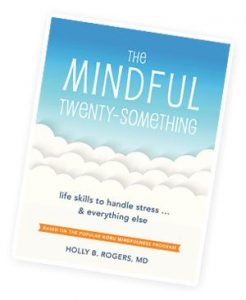
I love the feeling on campus at the start of each semester. There is the freshness and energy of new beginnings. Everyone knows that anything is possible, and all are ready to make the best of the weeks ahead.
The start of the semester is infused with good intentions to stay on top of work and avoid the stress of all-nighters.
For most people, the start of the semester is infused with good intentions to stay on top of their work and avoid the stress of all-nighters.
Every semester students tell me that they have gotten organized for the semester with all their assignments and tests in their calendar, and they have a plan for getting all their work done on time.
And then they say, “I just hope I stick with it.”
Don’t leave it all up to fate.
They say it kind of like they might say, “I just hope I win the lottery.” The feeling is sort of, “I’ve bought the ticket, now I just wait and see if I win.”
As if, just like the lottery, they have no influence over the outcome. As if it is random fate whether they stick with their plan and meet their goals.
I know that is how it can feel. It can feel as if, out of the blue, the semester careens out of control, jumping the tracks, completely derailing. And then you are fighting and flailing, trying desperately to catch up.
But unlike the lottery, there actually are some things you can do to help yourself stay on track and increase your chances of achieving your goals.
I’m not saying that you are the master of the universe and all things are under your control. We all know that is not true. Unexpected, bad stuff happens sometimes, but if you are mindful, and avoid falling into the trap of self-criticism, there are some things you can do to stay in balance.
You don’t have to leave it all up to fate.
Follow these 7 tips to keep your semester on track:
1. Go to class.
Even if you think going to class is a waste of time, still go to class. And when you are in class, give your full attention to the lecture and discussion. You will learn more than you think, you are less likely to miss important deadlines, and you’ll stay on a regular schedule.
I’ve had many students tell me that when they quit looking at the clock and spending the whole class period waiting for it to be over, and instead used their mindfulness skills to be attentive and engaged, class time went faster and was more enjoyable. Give it a try.

2. Make time to exercise most days.
Your brain won’t work optimally without regular exercise. Your mood won’t stay as steady without regular exercise. Your stress levels will get higher without regular exercise. So find exercise you like to do and do it. Even better, exercise with a friend, then it counts as social time, too (see #3).
3. Spend some time with friends.
All humans are social animals. That includes you. You will function better and feel better if you regularly connect with your people. Grab food with friends, or study with friends. Spend some time relaxing with friends in the evening. Having a hard time finding your people? There are lots of resources on campus to help with that. Visit the counseling center for support and advice on how to build your relationships.
4. Do your homework.
Procrastination is stressful. It is an avoidance strategy that always backfires in the end. Get a study partner if you need someone to hold you accountable. If you can’t find your way around your procrastination on your own, get some help. Visit your counseling center or the academic skills center on your campus. Learn some new strategies to change your old patterns.
5. Spend ten minutes every day practicing mindfulness.
Ten minutes a day of mindfulness will decrease your stress and help you get more enjoyment from your college or graduate school experience. It will also make you a better student. If there is a mindfulness class on your campus, sign up. To get started, you can find guided meditations on our Koru Mindfulness app. Practice belly breathing to help you sleep at night. Practice the gatha meditation to help you improve your focus.

6. Sleep.
You can’t learn without sleep. It’s a true fact.
7. Start up again tomorrow.
Most important. If something happens and you don’t do 1-6 today, don’t worry about it. Start up again tomorrow. Each day is new. You can always begin again. Don’t be hard on yourself. Your semester won’t come off the rails because of one bad day.
Put these tips somewhere you can see them, and do your best to follow them.
You can let us know how it goes in the comments section below . Or if you have other tips, please share them!
Get our latest articles in your inbox.
